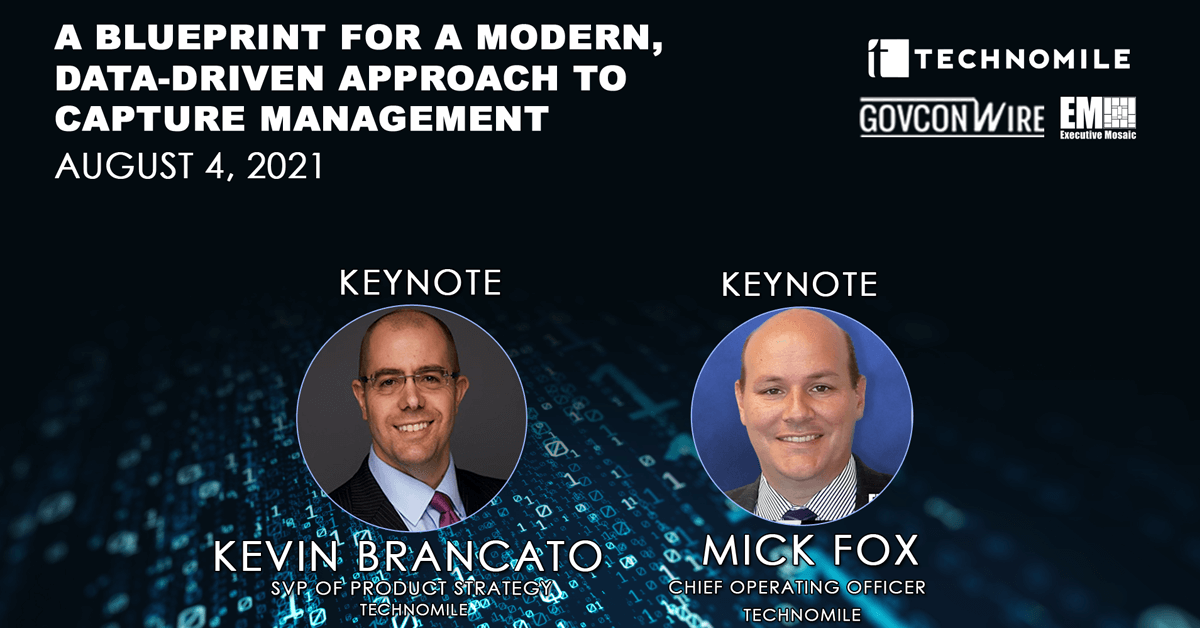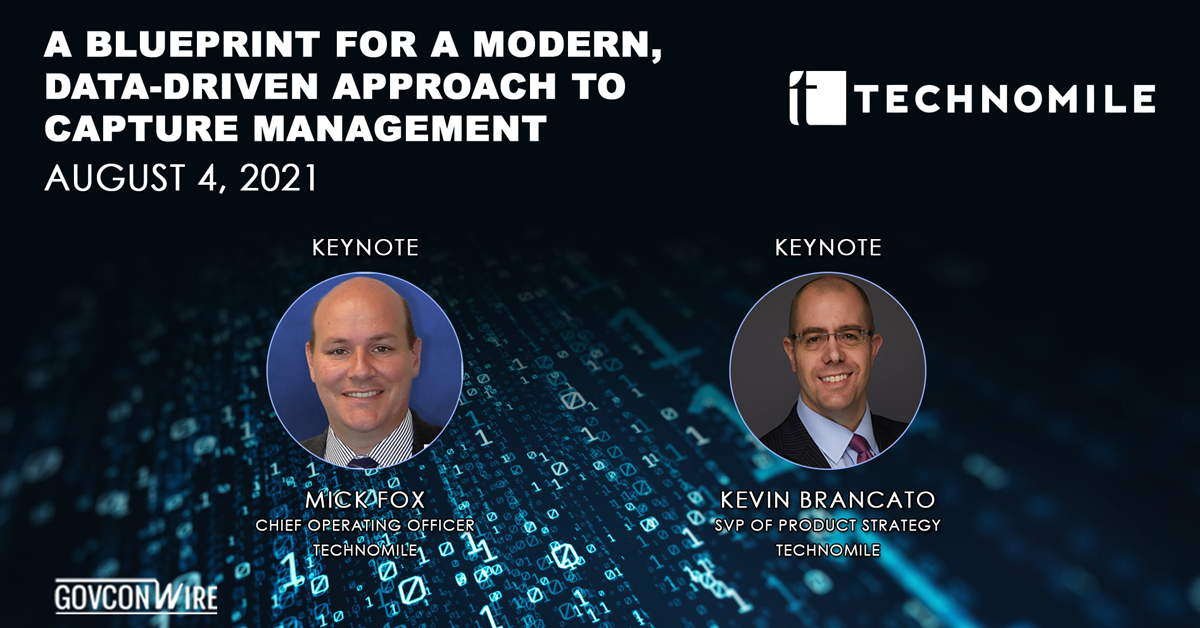As the government strives to keep pace with the rapid rate of technological advancements in the international private sector, it’s becoming clear that digital modernization is an inarguable and necessary step for all agencies and activities. Demonstrated benefits include greater efficiency, standardization across variable users and inputs and diminished risk.
The process of automating processes into a digital ecosystem isn’t novel at this point — it stretches back all the way to ATMs, online banking and email — but nonetheless, despite its historical benefits, technology companies have indicated that some government entities are still dragging their feet with regard to shifting toward automation and digital options.
“There’s skepticism that the complexity of the work that’s being done in the contracting environment can be handled by the tools that already exist,” Kevin Brancato, senior vice president of product strategy at TechnoMile, said Wednesday at GovCon Wire’s virtual Digital Transformation of Contract Management: Automation Imperative for Federal Contractors webinar.
The tools Brancato was referencing are specifically contract lifecycle management software, programs that assist and walk contracting companies through the process from pre-award to post-award. Brancato says they have a number of benefits but that aerospace and defense contractors are one-fifth less likely to have contract management tools and systems deployed than other companies in the same market.
Such companies worry that the “sector’s contracts are too complex for automation,” Brancato shared, but the executive says there are numerous demonstrations of the successful handling of in-depth and large contracts that disprove this fear.
During the webinar, Brancato and Forrester Senior Analyst Alla Valente enumerated what they see as the many benefits of CLM. Brancato brought a federal contracting expertise to the discussion while Valente was able to approach things from a commercial perspective.
On a financial level, Brancato and Valente say that CLM and “digital maturity” in general boosts revenue for GovCon firms while lowering costs.

“When there’s economic uncertainty, contracts help us to better manage it,” Valente said simply, suggesting that CLM was the only efficient and effective way to go about organizing and fulfilling contracts.
The duo said additional advantages of CLM include boosted customer experience, a fortified operational resilience and an information advantage, where data is able to be seamlessly turned into intelligence on commercial interactions.
They implored government agencies to not resist CLM and digital modernization more broadly, with Valente asserting that “it’s either digitalize or die.”
“When we’re not digitalizing our contracts, what ends up happening—certainly on the business side—is that these policies around innovation aren’t really being applied consistently,” Brancato commented.
“We still need to maintain the same type of resilience and speed, but without language that is being applied across all contracts inside of the organization consistently we’re almost leaving these loopholes for us to suffer the risks or the consequences instead of reaping the rewards of innovation,” he continued.






